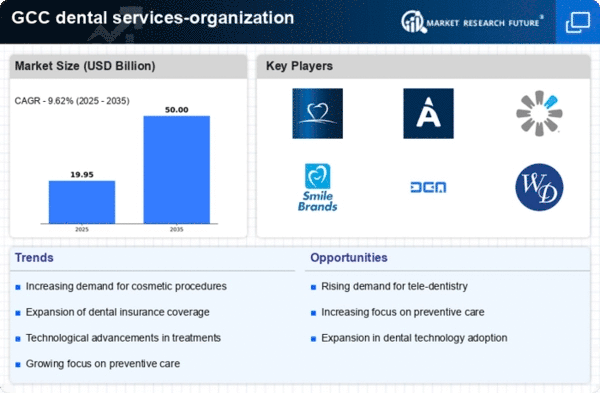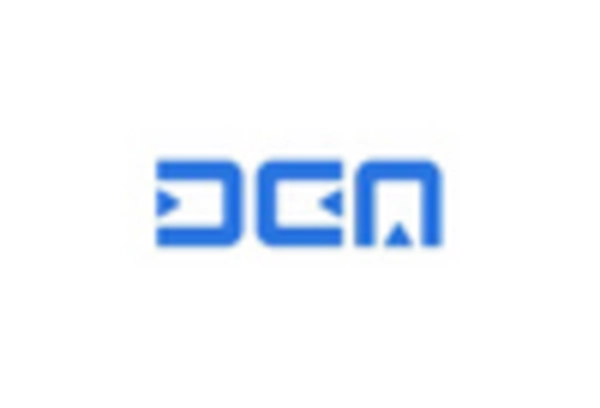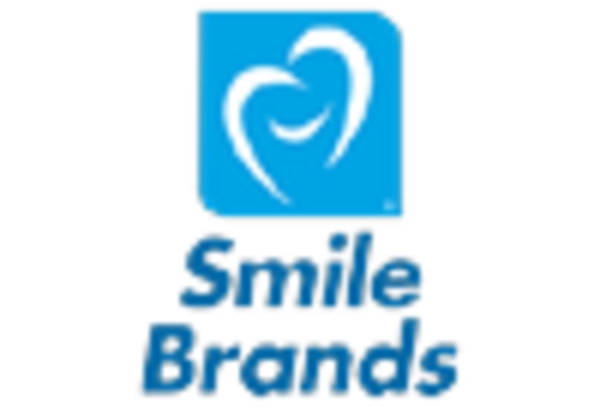The dental services-organization market is currently characterized by a dynamic competitive landscape, driven by factors such as increasing consumer demand for dental care, technological advancements, and a growing emphasis on preventive care. Major players in this market, including Heartland Dental (US), Aspen Dental (US), and Pacific Dental Services (US), are strategically positioning themselves through various operational focuses. Heartland Dental (US) emphasizes a decentralized management model, allowing individual practices to maintain autonomy while benefiting from shared resources. In contrast, Aspen Dental (US) has adopted a growth strategy centered on expanding its footprint through new practice openings and acquisitions, thereby enhancing its market share. Pacific Dental Services (US) focuses on technological integration, particularly in digital patient engagement and operational efficiencies, which collectively shape a competitive environment that is increasingly reliant on innovation and adaptability.
Key business tactics within the dental services-organization market include localizing service offerings to meet regional demands and optimizing supply chains to enhance operational efficiency. The market structure appears moderately fragmented, with a mix of large organizations and smaller independent practices. The collective influence of key players, such as Smile Brands (US) and Dental Care Alliance (US), contributes to a competitive atmosphere where collaboration and strategic partnerships are essential for growth and sustainability.
In October 2025, Smile Brands (US) announced a strategic partnership with a leading telehealth provider to enhance patient access to dental consultations. This move is significant as it aligns with the growing trend of digital health solutions, allowing Smile Brands (US) to expand its service offerings and improve patient engagement. The integration of telehealth services is likely to attract a broader patient base, particularly among those seeking convenience and accessibility in dental care.
In September 2025, Dental Care Alliance (US) launched a new initiative aimed at integrating artificial intelligence (AI) into its practice management systems. This initiative is crucial as it enhances operational efficiencies and improves patient care through data-driven insights. By leveraging AI, Dental Care Alliance (US) positions itself at the forefront of technological innovation, potentially setting a benchmark for competitors in the market.
In August 2025, Pacific Dental Services (US) expanded its operations into the Middle East, marking a significant step in its international growth strategy. This expansion is indicative of the company's ambition to tap into emerging markets, where demand for dental services is on the rise. By establishing a presence in the Middle East, Pacific Dental Services (US) not only diversifies its revenue streams but also enhances its global brand recognition.
As of November 2025, current competitive trends in the dental services-organization market are heavily influenced by digitalization, sustainability, and the integration of AI technologies. Strategic alliances are increasingly shaping the landscape, enabling companies to leverage shared resources and expertise. Looking ahead, competitive differentiation is likely to evolve from traditional price-based competition to a focus on innovation, technology adoption, and supply chain reliability. This shift underscores the importance of adaptability and forward-thinking strategies in maintaining a competitive edge in the market.

















